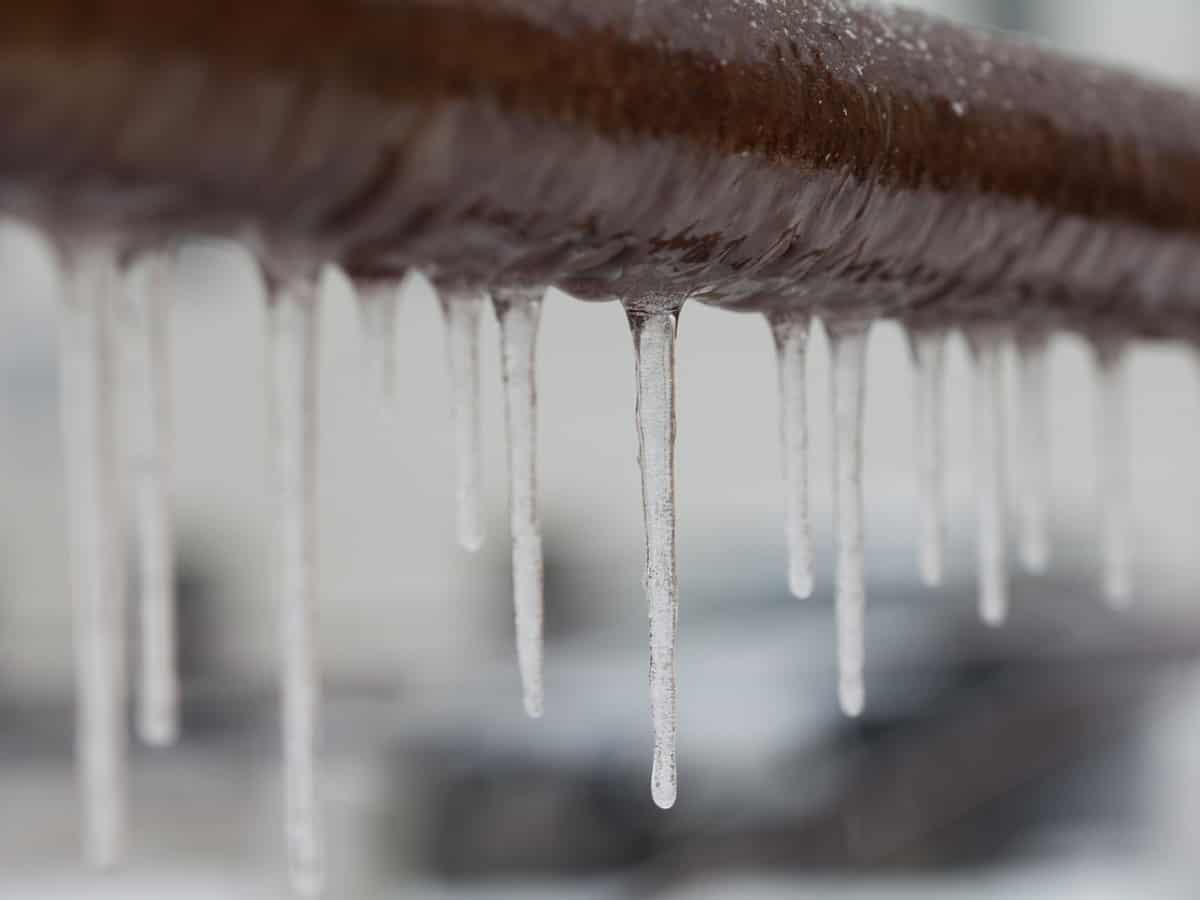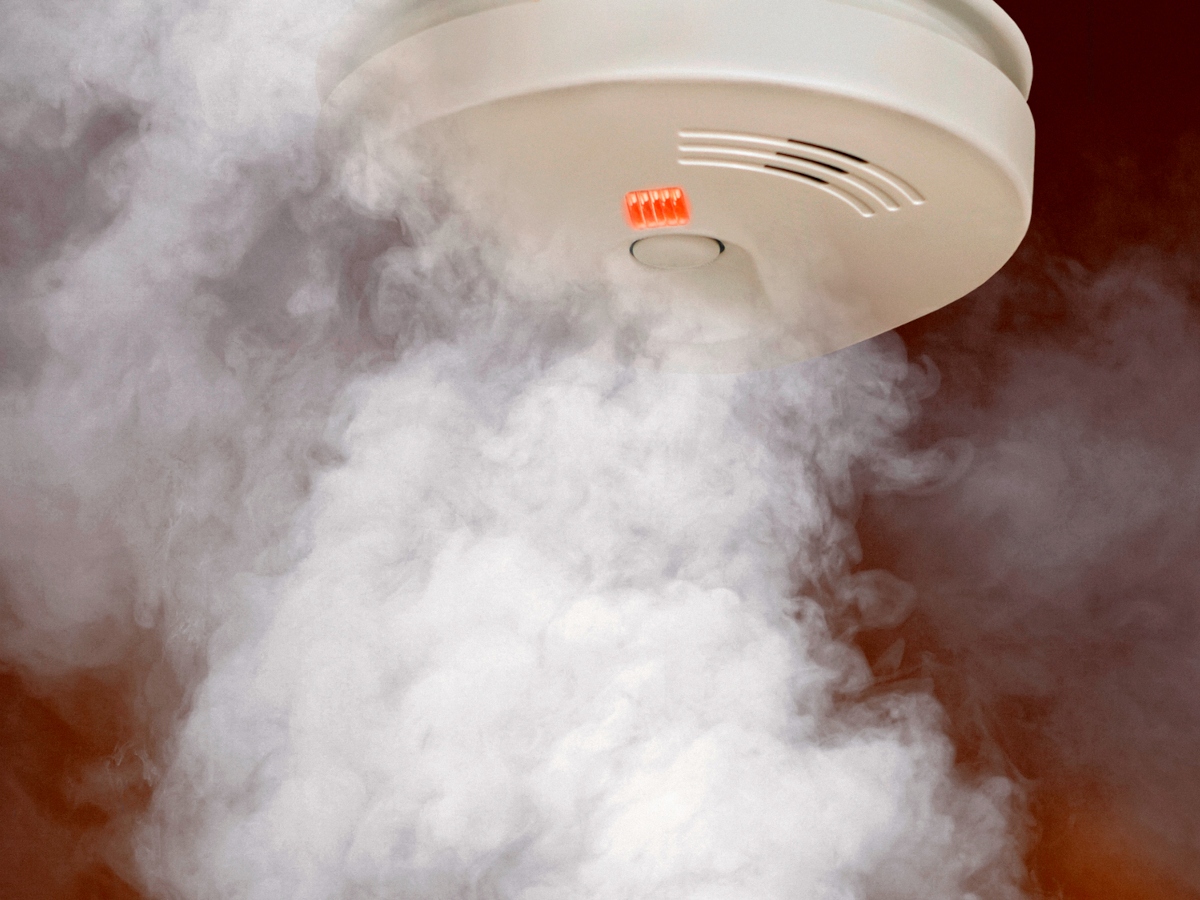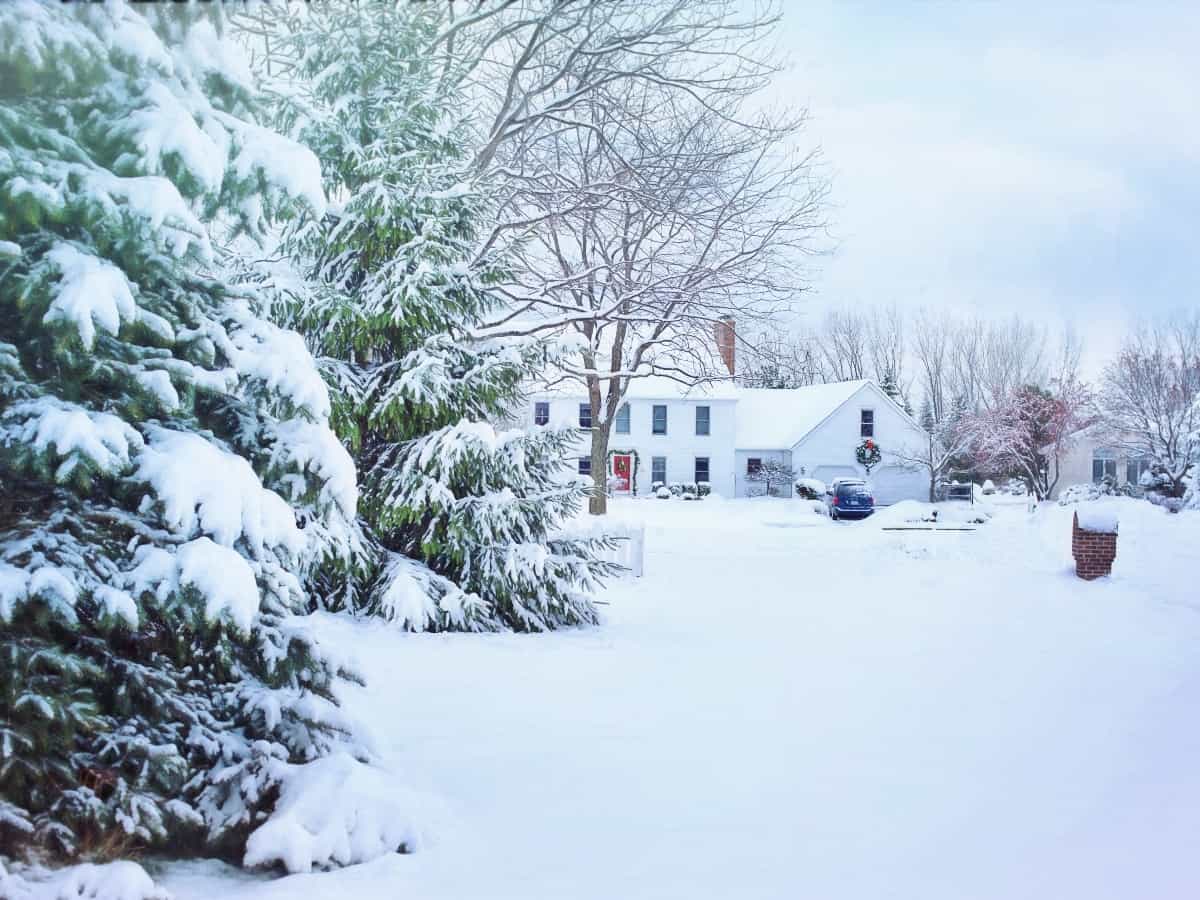If you live in an area that experiences winter, you know it is hard to predict and it can get intense. The last few years have been especially odd, where some years the temperature barely drops and others where it is below zero degrees for a long time – freezing weather as late as February.
No matter what comes, you want to ensure your residence is prepared for winter and freezing weather. This is especially important for lower temperatures, where frozen pipes can cause severe water damage that could result in thousands of dollars for a fix. To help you check all the boxes to be prepared, we’ve created the list below to help you winterize your home.
How to Winterize Your Home
Before the onset of winter and shorter days, there are a few critical tasks you will want to finish to avoid damage to your home.

Winterize Pipes
This is one of the most essential tasks you should do to protect your home. First, drain outdoor spigots to empty them of sitting water. Then, turn off the valve controlling the water supply to the outside. If the water remains on, this can cause the pipes to burst. This can lead to significant flooding and water damage.
Inside your house, make sure that your pipes are appropriately insulated, especially any that may be on exterior walls. Investigate your attic and crawl spaces, as those areas will likely have less insulation.
You will also want to ensure your house is heated above 55 degrees at the bare minimum during freezing weather. If your heat shuts down, all bets are off. Even a tiny crack can cause pipe and subsequent water damage. Depending on the height of the water, you could need to replace your bed, cabinets, electronics, and more.
If you live in a condo, duplex, or attached housing, this can affect your neighbors as well, causing damage to spread. If you live in an older house, your home may be more susceptible to freezing if it does not have up-to-date central heating. The type of fastenings you have on your pipes can also kick off your heat by itself if it is an older style.
If you live in a warmer climate, you’ll still want to protect your pipes. It is just as important to check this. Often, folks in warmer temperatures may go seven to ten years without cold weather – which lulls them into a false state of security, making the damage even more likely.
You will want to ensure you have appropriate insurance for peace of mind. That way, if the worst does happen, you will not be stuck with a massive repair bill.
Clean Your Gutters
Over the year, your gutters can get clogged with leaves and other debris, especially when the trees lose leaves in the fall. This can prevent water and snow from flowing safely off your roof. If your gutters get clogged, the water or snow may not flow appropriately, and drainage can cause structural damage to your home. This happens because gutters are designed to direct that water away from your house.
Cleaning your gutters during the winter can prevent water from freezing in the gutter system. When water freezes, it expands. This can cause damage to the gutters, shingles, and your house. Your roof may also develop weak points, which could lead to the need for a roof replacement. House damage from freezing weather could include water damage to your walls, flooding, or even damage to the house’s foundation.
Cleaning gutters also has added benefits for springtime when temperatures start to warm. Clean gutters deter pests, unlike leaf-filled ones, which make for attractive nests.

Check Smoke and Carbon Monoxide Detectors
When winter hits, it is a great time to verify that your detectors are up to date. Most sensors are battery-operated, meaning that changing batteries is essential for home and family safety. Even if you have a hard-wired alarm, it may rely on batteries as a backup. Smoke detectors are designed to alarm if they sense smoke in the house. They can save your life by giving you an earlier warning. The key to survival during a fire is quickly getting out of the home.
Though it seems counter-intuitive, cold weather leads to a spike in house fires. Half of these fires take place from December through February. Most of these fires are cooking-related, especially on major holidays, but the second leading cause is related to heating. Of course, you can and should also educate your family on safety practices for space heaters to prevent fires from occurring. The National Fire Prevention Association has a Heating Safety document to help you stay safe.
It covers updating carbon monoxide detectors as well. If you smell gas from a heater, do not light the device. Like with fire, it is essential to get out quickly and then call your gas company or fire department. Detectors act as an early warning system. Be sure to test your devices after you replace the batteries to ensure they are working as expected.
Furnace Maintenance
This is one where you will want to schedule an appointment with the professionals. This is often the company that installed your furnace, but if you need help finding a reputable company, look no further than ONIT Home. We do the legwork to find you the best company and have negotiated discounts to help save you money in the bargain.
During winter, your furnace needs to be on its A-game, as it will be working overtime like an accountant during tax season. An inefficient furnace can lead to high energy bills, which may lead to higher expenses than you planned, all due to freezing weather.
To prepare, the first thing to do is replace your filter. Throughout the year, the filter gets dirty, so much so that it can turn a pristine white filter into pure black. What is the cause? Hair, dust, and other debris can pile up and block the filter. A clogged filter will make your furnace work harder, and it may not be able to heat your whole house, or at least not do so efficiently.
You can do other things to assist your furnace, such as installing storm windows and cleaning your vents. Storm windows can keep the heat in during freezing weather. It is also worth checking your doors and other house openings for cracks that heat can escape from. This is responsible for around 30 percent of heat loss in the winter, even though it is avoidable. Caulking any openings can shore up your doors and prevent heat loss.
This all helps your furnace work more efficiently. All said, HVAC systems for furnaces require more maintenance than you might think. The last thing you want is your furnace to break down mid-winter, putting your pipes and comfort at risk.
Reverse and Clear Fans and Vents
Vents and fans go in two directions, a fact that is often overlooked as it is easy to forget. Wise use of your ceiling fan and vents can help your furnace heat the home. Fans take up less energy than furnaces, so their assistance can save you money and is worth taking advantage of.
During the warmer months, your ceiling fan is likely pointed to blow air down from the ceiling. Blowing air down keeps the air near the floor fresh and cool. Most fans have a switch on the center of the fan next to the on/off switch that controls this.
In the colder months, you will not want cooler air in your house. You are investing time and money in warming your home. When fans are set typically for summer, they are actively fighting against your furnace. To prevent this, switch your fan into reverse to draw air upward. Heat rises and brings warmer air back down to where the people are, allowing you to keep your furnace at a lower setting.
Your fan can also work in tandem with your vents, which should be similarly reversed in winter. Adjusting the angle of the metal in the vent manipulates the air to keep you warm.
It is also essential to clear and clean your vents in the winter. If the vents are blocked by furniture or heavy drapes, it can restrict airflow to the room. It can be worth rearranging your furniture to avoid this problem. If you have pets, cleaning the vents will be especially important so they are not blocked by pet hair.

Take Action Today!
Contact ONIT Home at 1-833-433-0331 today! We’re here to help you find the right professionals to keep your home safe, including heating specialists, gutter cleaners, and plumbers. Save time researching as ONIT Home has partnered with top companies and professionals to get you insider pricing and discounts so you can protect your home from freezing weather while also protecting your budget.



